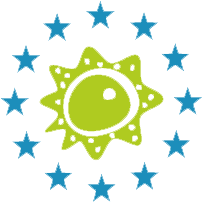Eurosurveillance scientific seminar - Communicating science: social media and other means - Pitfalls and benefits
In this tenth Eurosurveillance seminar at ESCAIDE, the panel members will explore and discuss new ways of presenting and translating knowledge in science communication. Scientific journals and experts are generally considered trusted information sources. As an open access scientific journal, Eurosurveillance plays a role in assuring quality, upholding standards and disseminating scholarly content.
Science communication and knowledge translation skills are important for researchers and public health experts to retain trust and reach out. Being aware and taking into account the strengths and possible pitfalls of various science communication means can help to ‘get messages through’, retain credibility and gauge the risk of becoming a possible target of personal attacks or even harassment. Whether it is using social media as vehicle to present new findings, give further context or comment on published work, or collaborating with science communicators and journalists to explain research to wider audiences, there are many ways for scientists and experts to present and discuss research.
The Eurosurveillance seminar is open for all ESCAIDE registered participants
Date and time
24 November 2022, 13:30-15.00 CET
Preliminary agenda
13:30-13:35 Welcome note by Eurosurveillance editor-in-chief Ines Steffens.
13:35-13:50 Introduction of the seminar topic by Mario Fafangel, National Institute of Public Health Slovenia.
13:50-14:10 ‘How science journalism can fuel public debates and improve people's lives’ by Pampa García Molina, Science Media Centre Spain, Fundación Española para la Ciencia y la Tecnología (FECYT)
14:10-14:30 'Waves, storms & going viral: Science communication on social media during a pandemic' by Isabella Eckerle, University of Geneva, Switzerland.
14:30-15:00 Panel discussion including Q&A.
Moderator
Dr Mario Fafangel
Mario Fafangel is a medical doctor, public health specialist and EPIET alumnus. Currently, Dr Fafangel is the acting head of the Centre for Infectious Diseases of the Slovenian National Institute of Public Health (NIJZ).
Dr Fafangel has long-standing experience (over 10 years) in outbreak management and field response both nationally and internationally, including in a World Health Organization field mission experience during the 2014 Ebola outbreak in Sierra Leone, and is currently in the forefront of coronavirus disease (COVID-19) response in Slovenia. He also has broad experience in vaccinology and biostatistics. He is an experienced lecturer for lay and professional audiences.
Speakers
Prof. Isabella Eckerle
Isabella Eckerle is a medical doctor and clinical virologist with a board certificate in microbiology, virology and infectious disease epidemiology. She is associate professor and co-head of the Geneva Centre for Emerging Viral Disease, a joint institution of the HUG and Unige, and independent research group leader of the group “emerging viruses” affiliated with the Department of Microbiology and Molecular Medicine at the Medical Faculty of the University of Geneva.
Her research interests are emerging zoonotic viruses with a focus on coronaviruses since 2011, including in vitro studies on MERS-CoV, HCoV-229E and SARS-CoV-2 and the development of novel and innovative cell culture models to better understand emerging viruses in a reservoir host-specific context.
During the Covid-19 pandemic, the laboratory has become a WHO reference laboratory for Covid-19 testing and she was involved in multiple high-level activities as one of the few experts having worked on coronaviruses before the emergence of SARS-CoV-2.
She is part of the High-level European Expert group proposing a roadmap towards stabilisation of the COVID-19 pandemic in the European Region, member of the joint ECDC/WHO Euro SARS-CoV-2 Virus Characterisation Working Group, scientific advisory board for the WHO BioHub, Spiez Laboratory, Switzerland and expert on the panel on pandemic respiratory diseases at the Robert Koch Institute (RKI) in Germany.
Pampa García Molina
Image credit: Berta Delgado
Pampa García Molina (Madrid, 1976) is a science journalist with a degree in Theoretical Physics and a master's degree in Science Journalism from the Carlos III University of Madrid.
Since 2011 she has been working at FECYT, where she heads the Science Media Centre Spain from March 2022. Until 2022, she was the editor-in-chief of SINC, the first state-wide public agency specialising in information on science, technology and innovation in Spanish, licensed under Creative Commons. She is part of the board of the Spanish Association of Science Communication. She has been a regular contributor to radio programmes on science on RNE, Onda Cero and others.
She teaches specialised training in science journalism and science communication in professional master's degrees, workshops and seminars aimed at both journalists and the research community. Previously, she worked as reporter and editor for various media in Spain, and she was co-author of popular science books for adults and children.
